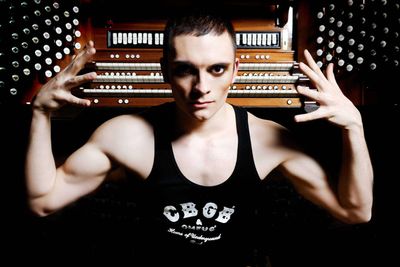Carpenter, the first organist ever nominated for a Grammy Award for a solo album, will play in 6 American cities in April and May, before continuing his tour in Europe and Russia. In this Q&A with Out & About Newspaper, Carpenter shares how he developed his craft and offers a preview of what you can expect during his May 15 performance at Nashville's Schermerhorn Symphony Hall.
What originally drew you to classical music and this line of work? What kind of prior experience might have influenced you?
Well, it's a line of work only in It's really a continuation of a kind of obsession. There was no prior experience: I've been playing organ from the age of 4, so I've been playing for 26 years. I was initially a home-schooled person. When I was growing up, I had culturally-rich parents, and that was a good thing. I had an encyclopedia; there was a whole volume was dedicated to music, and there was a picture of a cinema organ (used in silent films during the 1920s). There was a sense of glamour.
How do you inspire an audience to be more intrigued by classical music, especially those who might find it old-fashioned?
I mean, obviously, any prejudgment is an inhibitor to new progress. Commercial success is the hand maiden of artistic progress. (I try) to commercial success and the potential of the organ, and there are few that are doing that in classical music at large. If I were to abandon the classical music and only play my pop songs, that would lack the impact and interest (of being diverse).
Describe what an audience might expect from your live performances.
For the most part, I don't engage with the concepts of classical music. There are certain presentational stereotypes. I'm communicating kind of a story. I think the audience will immediately understand that this is a complete departure from the norm....you can expect something different. I feel like if it's genuine, the audience will appreciate it.
In your November 2009 interview with the New York Times, you described your sexuality as very "inclusive." Do you feel that open-mindedness is translated into your art?
It's kind of ironic; in many ways, I'm not the most open-minded person. I am extremely fearless about my tastes and determinations. Open-mindedness doesn't have to mean being submissive and having acceptance of anything. So the word may not be "open-mindedness" as much as "openness."
(later)
It's reflexive for those of us in these communities (the artistic and the gay communities) to be thirsty for that openness. There's something we can share in the live experience like nowhere else. It's my goal to give the audience the richest possible experience.
